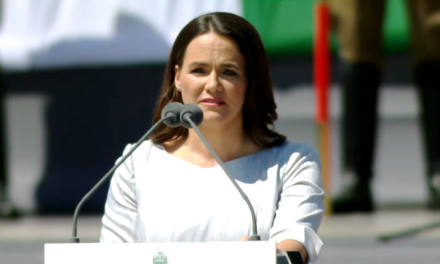The bureaucrats of the European Commission are blackmailing both Hungary and Poland with the EU funds due to them.
Like Hungary, Poland has not yet received the EU funds due to them, the European Commission is essentially blackmailing the right-wing government by paying the funds, so it wants to take control of the country. Among other things, Janusz Kowalski, the Polish Deputy Minister of Agriculture, referred to this in an interview. He indicated: the European Commission is a body that is paid for with taxpayers' money, and it should pursue goals that are in line with the interests of the member states, Magyar Nemzet reported.
"On the other hand, Brussels bureaucrats blackmail the Poles, lie and steal their money"
- stated Kowalski, who noted that "today is the right moment to withdraw from previous decisions, because the European Union has deceived Poland, is blackmailing it, does not pay the money".
"The European Union wants to implement a federalist plan in which there are no independent states, and decisions about laws, taxes and investments are made in Brussels. That's why today Poland should take the risk, veto everything, and absolutely must not agree to any new taxes," emphasized Janusz Kowalski. He added: "It is not possible for a Brussels bureaucrat to hold the Polish Prime Minister or ministers accountable for what laws we pass."
Hungary is also being manipulated
Brussels is acting hard against Hungary, the Frankfurter Allgemeine Zeitung wrote on Wednesday. The German newspaper learned from "reliable" sources in Brussels that "the competent bodies of the Commission have come to the conclusion that Budapest has not sufficiently fulfilled its reform promises in the fight against corruption."
According to Mandiner's information , however, the situation is by no means as clear as the German press presents it to us.
Negotiations between Brussels and Budapest took place on three topics in connection with European Union resources. One issue is the rule of law and conditionality procedure initiated against Hungary two days after the 2022 parliamentary elections. Brussels linked this issue to the negotiations on the recovery fund and the payment of cohesion funds to Hungary through the seven-year operational programs according to the EU treaty.
When the conditionality procedure was initiated against Hungary, the Commission stated that negotiations on the recovery fund and the payment of cohesion funds due to Hungary can only begin if Hungary dispels Brussels' rule of law concerns and the conditionality procedure initiated on rule of law issues is successfully concluded.
Hungary undertook and is implementing a 17-point rule of law and anti-corruption package of measures that was also accepted by the Commission. In recent weeks, a series of laws have emerged from the package of proposals, as the Hungarian Parliament has made all the points recorded in the agreement into law.
However, the Commission's position has now changed, as they are not fully satisfied with the Hungarian measures, but despite this they accept the plan submitted by Hungary for the recovery fund, and they also sign the partnership agreement necessary for the cohesion funds, but they bind the payments to new conditions.
The tug-of-war between Brussels and Budapest is therefore a draw. The government managed to get the recovery plan accepted and the partnership agreement was finalized, but further negotiations are needed for specific payments.
Featured image: ShutterStock/Alexandros Michailidis













